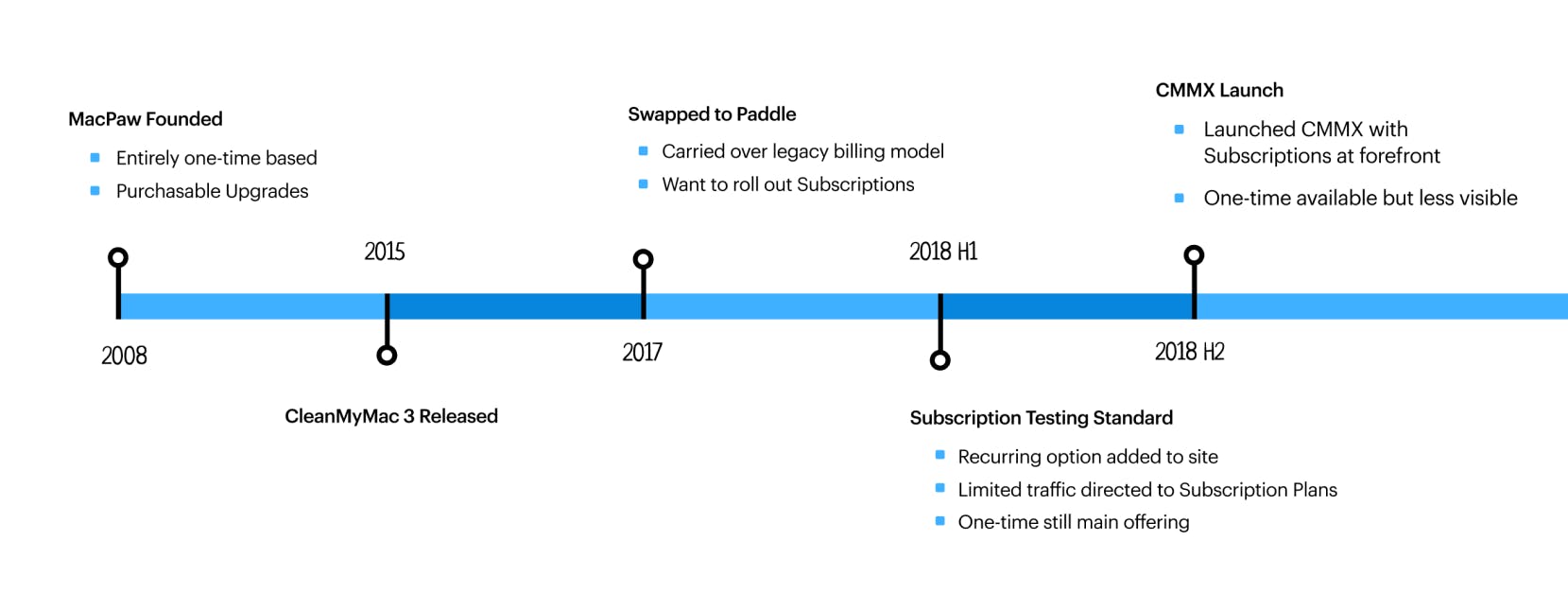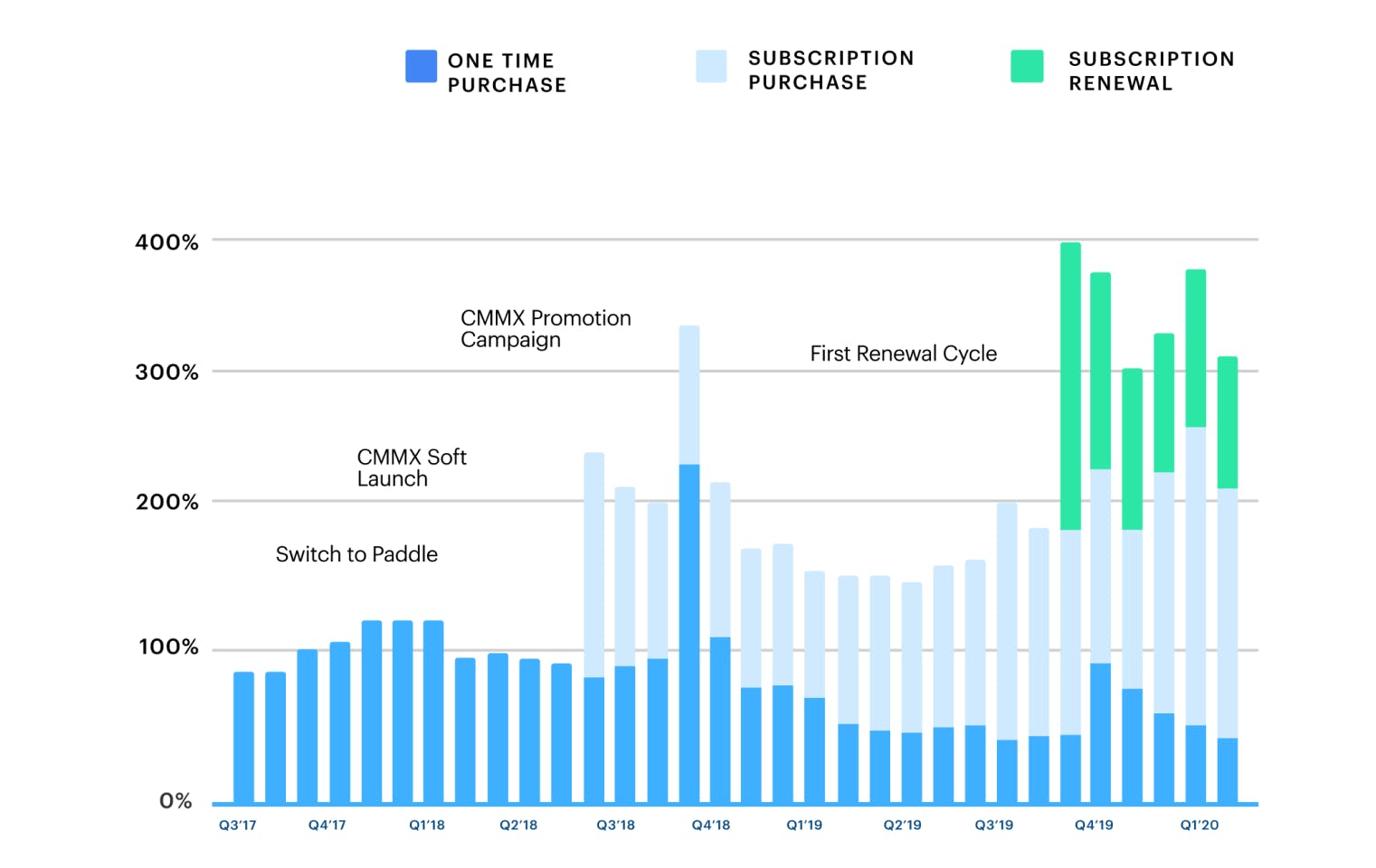Join 6,000+ companies already growing with Paddle
Moving to a subscription strategy
MacPaw provides software to help Mac users clean, speed up and protect their devices.
It wanted to explore the benefits of transitioning away from software licensing and releasing the newest version of its flagship CleanMyMac product through a SaaS model.
Since it launched in 2008, MacPaw had typically released new versions of CleanMyMac every three years. As a SaaS company, it saw the potential to serve customers better through regular updates that could be shipped to subscribers as they became ready. It also wanted to break the cycle of high development costs for new releases, and the risk that customer uptake of these expensive updates would disappoint.
As a well-established company with a loyal customer base, MacPaw needed to make this change carefully. It turned to Paddle to resolve a number of key challenges around the switch to SaaS:
- How to test subscription pricing levels and assess customer feedback.
- How to optimize the storefront and billings infrastructure for SaaS customers, and improve communication.
- How to manage the shift from an acquisition-focused model to one based on customer retention.
Paddle as a complete SaaS Commerce partner
Paddle worked closely with the MacPaw team to ensure that the shift to SaaS was a steady process, closely informed by customer feedback.

The first stage was to test the subscription model and ensure it was viable with a sufficient number of existing customers.
For a six-month period prior to the launch of CleanMyMac X, the first SaaS edition of the product, Paddle helped MacPaw to **A/B test** its pricing by channel and geography – working to identify the sweet spot that would maximize both the subscription cost and conversion rate.
Once this testing had been completed and CleanMyMac X was launched as a primarily SaaS product (with an option for one-off purchase), the focus shifted to maximizing retention of new subscription customers.
Paddle implemented its end-to-end Optimised Payment Acceptance via global infrastructure of banks, payment processors and card companies to maximize checkout and renewal payment acceptance in addition to other features as auto-updating of expired cards to ensure customers can continue to pay for their subscriptions. Intelligent Payment Dunning in order to maximize the rate of successful payments even if it failed initially. Email Dunning helps create and send optimized pre-billing and payment failure messages to customers.
Paddle has also supported MacPaw in transitioning how they set their financial targets and KPIs to be a better fit with SaaS. This included reducing the focus on checkout conversion rate and more emphasis on customer retention, monthly recurring revenue, and customer lifetime value.
Launching subscriptions also required a communications strategy to demonstrate the additional value customers receive under the subscription model - Quicker release cycles, improved customer experience, and more. This was paramount to not alienate their existing customer base.
Finally, Paddle is helping MacPaw to develop the next stage of its SaaS evolution: a ‘customer cabinet’ that provides a one-stop-shop for users to manage their subscription, add new licenses and access upgrades or other products. The hub is seen as an important enabler of both ongoing customer retention and future revenue growth.
MacPaw tripled revenue by moving to SaaS with Paddle
CleanMyMac X was launched as a SaaS product in mid-2018. A year later, the results were clear to see: MacPaw’s revenue had increased by 200%.
This was despite the 15% drop in conversions that occurred post-launch, something companies often experience in the early days of moving to a SaaS model. This initial slowdown was more than compensated for by the 75% renewal rate of customers after the first year.
With its SaaS model still at an early stage, even after trebling its revenue MacPaw still has a long runway for growth ahead.

